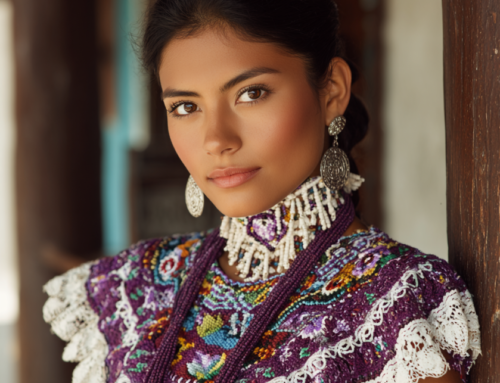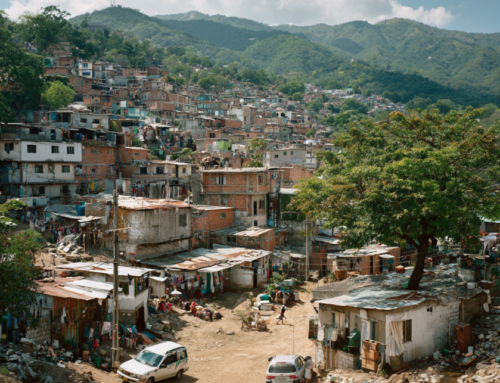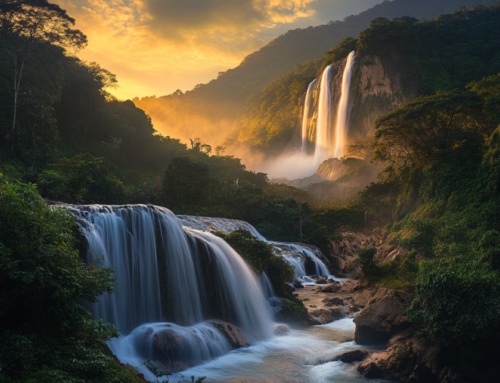A Look at the Cultural History With Mike Savage
Honduras, nestled in the heart of Central America, boasts a vibrant cultural landscape shaped by indigenous civilizations, Spanish colonial influence, and African heritage.
This fascinating blend has created a unique national identity that continues to evolve while preserving its historical roots.
I’ve previously covered insights about Honduras from a literary perspective and even a culinary aspect.
Now let’s look at the rich history that has shaped the people and culture of Honduras.
Indigenous Foundations
The Maya civilization left an indelible mark on Honduran culture, particularly in the western region where the magnificent ruins of Copán stand as a testament to their advanced civilization.
The indigenous Lenca, Pech, Tawahka, and Miskito peoples have also contributed significantly to the country’s cultural mosaic, particularly in traditional crafts, agricultural practices, and spiritual beliefs.
Music and Dance
Honduran musical traditions reflect the country’s diverse heritage. The punta, a Garifuna rhythm and dance style, showcases the African influence on coastal communities. Traditional instruments like the marimba, inherited from indigenous cultures, feature prominently in folk music. The caramba, a distinctly Honduran dance combining Spanish and indigenous elements, tells stories of love and daily life through graceful movements.
Culinary Heritage
Honduran cuisine is a delightful fusion of indigenous, Spanish, and Caribbean influences. The national dish, plato típico, features:
- Carne asada (grilled beef)
- Frijoles refritos (refried beans)
- Plátanos fritos (fried plantains)
- Crema (sour cream)
- Tortillas de maíz (corn tortillas)
The baleada, a flour tortilla filled with refried beans, cream, and cheese, represents Honduras’s innovative street food culture. Along the Caribbean coast, seafood dishes incorporate coconut milk and tropical fruits, reflecting Garifuna culinary traditions.
Festivals and Celebrations
Religious and cultural festivals punctuate the Honduran calendar:
La Feria Juniana
Celebrated in June in San Pedro Sula, this month-long festival features parades, music, dance performances, and traditional food fairs, highlighting the city’s cultural diversity.
Día de Lempira
July 20th commemorates the indigenous chief Lempira who resisted Spanish conquest. The celebration includes traditional music, indigenous ceremonies, and historical reenactments.
Festival de la Virgen de Suyapa
This February festival honors Honduras’s patron saint with pilgrimages, prayers, and cultural performances, demonstrating the deep connection between faith and culture.
Traditional Arts and Crafts
Honduran artisans excel in various traditional crafts:
- Lenca pottery, characterized by distinctive geometric patterns
- Intricately woven textiles using traditional techniques
- Wood carving, particularly in the production of masks and decorative items
- Leather work, producing everything from sandals to elaborate saddles
Contemporary Cultural Expression
Modern Honduras maintains its traditional values while embracing contemporary forms of expression:
- Urban murals in cities like Tegucigalpa blend traditional motifs with modern artistic styles
- Contemporary musicians incorporate traditional instruments and rhythms into popular music
- Young designers integrate traditional patterns and techniques into modern fashion
Language and Communication
While Spanish is the official language, Honduras’s linguistic heritage includes various indigenous languages:
- Garifuna, spoken along the Caribbean coast
- Miskito, primarily in the Mosquitia region
- Pech and Tawahka in eastern Honduras These languages preserve unique cultural concepts and worldviews.
Social Customs and Values
Honduran society places strong emphasis on:
- Family bonds and extended family relationships
- Respect for elders and traditional wisdom
- Community solidarity and mutual support
- Religious faith and spiritual practices
- Hospitality towards visitors
Preserving Cultural Heritage
Modern Honduras faces the challenge of preserving its rich cultural heritage while adapting to globalization. Various initiatives work to document and protect traditional practices:
- Cultural centers teaching traditional crafts to younger generations
- Music schools preserving traditional instruments and compositions
- Culinary programs promoting traditional cooking methods
- Language preservation projects in indigenous communities
Honduras’s cultural heritage represents a remarkable fusion of indigenous, colonial, and modern influences. This dynamic blend continues to evolve, creating new forms of expression while maintaining connections to ancient traditions.
Understanding and preserving this cultural wealth is crucial for future generations, ensuring that Honduras’s unique identity remains vibrant and meaningful in an increasingly interconnected world.
For more information about how you can contribute to this thriving country and, in particular, help impoverished families in the country, I’ve set up the Savage-Rivera Foundation to help get essential supplies to those in need in the country.
Please reach out for more information.




